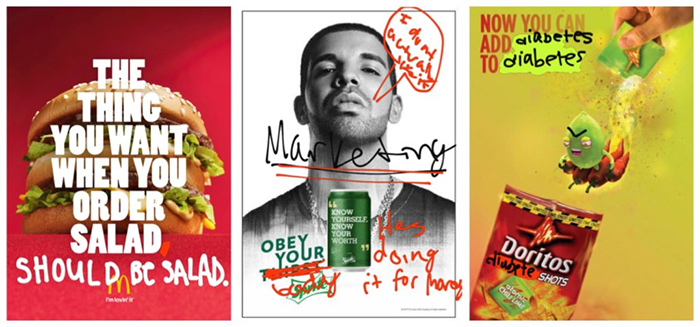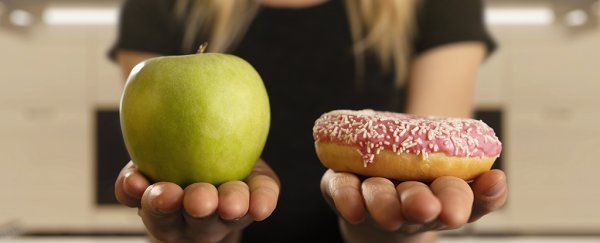How do we prevent young people from eating too much junk food and exposing themselves to the associated health risks? A simple but effective psychological strategy looks to be the key, according to new research.
The genius is it's all about tapping into teens' natural tendency to rebel: by pointing out how well-funded marketing campaigns are designed to get all of us hooked on junk foods, researchers were able to get the young people to actually shift their eating choices.
The technique works better than simply giving teens information on healthy eating, the study shows, leveraging their innate resistance to being tricked or coerced into something – a resistance that can make a real difference in terms of diet.
"One of the most exciting things is that we got kids to have a more negative immediate gut reaction to junk food and junk food marketing, and a more positive immediate gut reaction to healthy foods," says behavioural scientist Christopher J. Bryan from the University of Chicago Booth School of Business.
A total of 362 eighth-graders (aged 13 to 15) took part in the study in Texas. For part of the research, the students were split into two groups: one was given a fact-based investigative report on some of the marketing tricks used by food companies, and the other was given a more straightforward report on the benefits of healthy eating.
For example, the unhealthy eating exposé included lines like "companies are spending lots of money to find ways to make [unhealthy foods] even more addictive". The healthy eating tract had lines such as "just like a car, our bodies need fuel in order to keep running, and nutrients are just like fuel for our bodies".
Using follow-up surveys and monitoring cafeteria purchases for the rest of the school year, the researchers found that particularly among the exposé group, junk food was no longer seen in such a positive light, and that the teens were making healthier choices in snacks and meals.
The longer term effect on school cafeteria choices was most noticeable in teenage boys, who bought 31 percent fewer unhealthy snacks over the course of the next three months.
The contrast might be because teenage girls are more concerned with body image and calorie counts, and are therefore equally persuaded by the two types of information, the researchers suggest.
Inspiration for the experiment came from the anti-tobacco campaigns of the 1990s, which also highlighted the suspicious tactics of big firms to get people hooked on something that is ultimately bad for them.
"That was the first time not smoking was framed as the rebellious thing to do," Bryan told Jessica Fu at The New Food Economy.
In another part of the experiment, the young people were asked to adapt adverts for unhealthy food with more truthful tag-lines: you can see some of the results below.
 (Christopher J. Bryan)
(Christopher J. Bryan)
The team behind the study thinks the social justice angle of the exposé, together with the teens' eagerness not to be controlled by any group of adults – whether parents or marketing executives – is enough to cause a change in habits.
Even better, the experiment can be easily scaled up to bigger groups of kids and doesn't cost much money either, making it one potential way of fighting growing levels of obesity across the world.
"Food marketing is deliberately designed to create positive emotional associations with junk food, to connect it with feelings of happiness and fun," says Bryan. "What we've done is turn that around on the food marketers by exposing this manipulation to teenagers, triggering their natural strong aversion to being controlled by adults."
"If we could make more kids aware of that, it might make a real difference."
The research has been published in Nature Human Behaviour.
